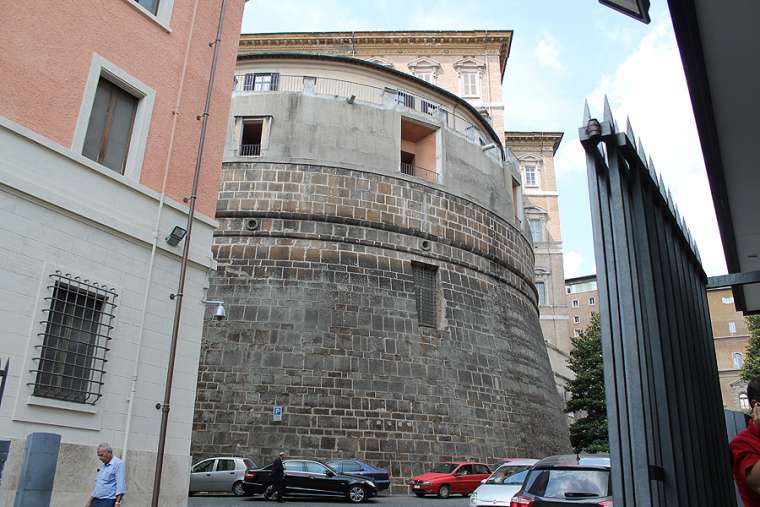The Institute for Religious Works, or ‘Vatican bank’. (File Photo/CNA).
The Vatican court is due to hold a sentencing hearing next week in a criminal trial against the former president of the Institute for Religious Works.
Angelo Caloia, the 81-year-old ex-president of the institute commonly known as the “Vatican bank,” has been on trial for two years for money laundering and self-laundering, and embezzlement.
The HuffPost reported last month that the Vatican’s Promoter of Justice, Alessandro Diddi, is seeking an eight-year jail term for Caloia, the first time the Vatican has sought a prison sentence for financial crimes.
The Jan. 21 hearing is reportedly being held to issue the court’s sentence after the two-year trial.
Caloia was president of the institute — also known by its Italian initials, IOR — from 1989 to 2009.
The 21 January hearing will also include Caloia’s lawyer, the 96-year-old Gabriele Liuzzo, and Liuzzo’s son, Lamberto Liuzzo. The lawyer was tried on the same charges as Caloia and is also facing a possible eight years in prison. His son was tried for money laundering and self-laundering and may get up to six years in prison, according to the HuffPost.
Diddi also reportedly asked for the confiscation of 32 million euros ($39 million) already seized from the accounts of Caloia and Gabrielle Liuzzo also at the institute.
In addition, Diddi is said to have requested the confiscation of the equivalent of a further 25 million euros ($30 million).
The Vatican court ordered Caloia and Liuzzo to stand trial in March 2018. It accused them of participating in “unlawful conduct” from 2001 to 2008 during “the disposal of a considerable part of the institute’s real estate assets.”
The HuffPost said that the two men allegedly sold the IOR’s real estate assets to themselves through offshore companies and firms in Luxembourg via “a complex shielding operation.”
Former IOR director general Lelio Scaletti, who died on 15 October 2015, was part of the original investigation, launched in 2014 after complaints were lodged by the IOR.
In February 2018, the institute announced that it had joined a civil suit, in addition to the criminal proceedings, against Caloia and Liuzzo.
The trial began on 9 May 2018. At the first hearing, the Vatican court announced plans to appoint experts to assess the value of properties that Caloia and Liuzzo were accused of selling at below-market rates, while allegedly making off-paper agreements for higher amounts to pocket the difference.
Caloia was present at the nearly four-hour hearing, though Liuzzo was absent, citing his age.
According to the HuffPost, hearings over the next two and a half years drew on appraisals by the Promontory Financial Group, at the request of Ernst von Freyberg, IOR president from February 2013 to July 2014.
The hearings also reportedly considered three letters rogatory sent from the Vatican to Switzerland, with the most recent response arriving on Jan. 24, 2020. Letters rogatory are a formal request from courts in one country to the courts of another country for judicial assistance.
The Institute for Religious Works was founded in 1942 under Pope Pius XII but can trace its roots back as far as 1887. It aims to hold and administer money designated for “religious works or charity,” according to its website.
It accepts deposits from legal entities or persons of the Holy See and of Vatican City State. The IOR’s main function is to manage bank accounts for religious orders and Catholic associations.
The IOR had 14,996 clients as of December 2019. Nearly half of the clients are religious orders. Other clients include Vatican offices, apostolic nunciatures, episcopal conferences, parishes, and clergy.
Source: CNA

